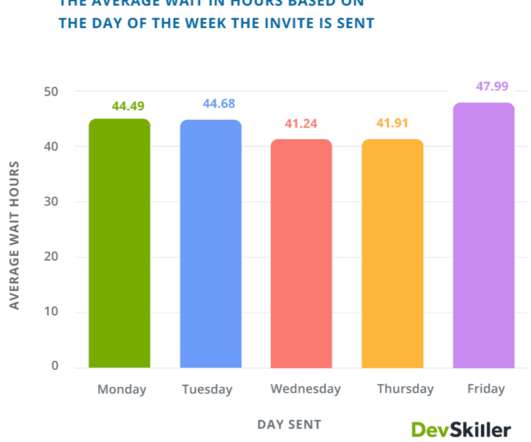4 Compelling Reasons to Choose Skills over Degrees
Vervoe
JULY 7, 2022
A Korn Ferry study predicts that there will be a global human talent shortage of more than 85 million people by 2030. From improving workplace diversity and productivity to lowering recruitment costs and closing skill gaps, there are many reasons why organizations around the world have chosen to replace degree-based hiring with skills.
















Let's personalize your content